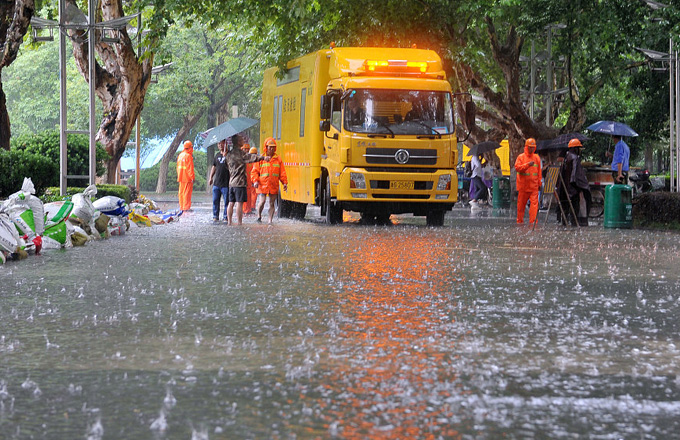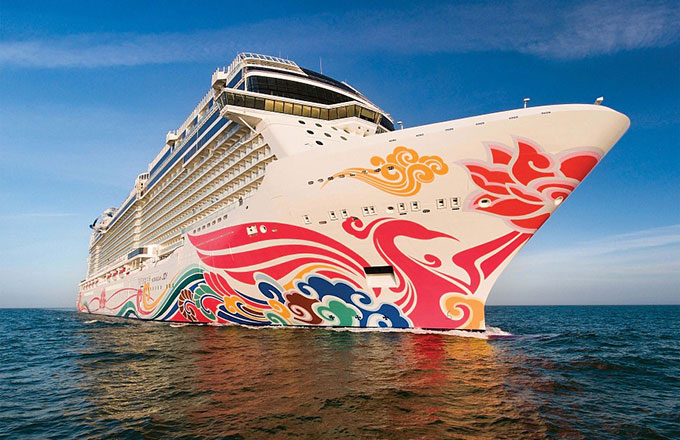One country, two systems
June 22-23, 1984
The Chinese Government is firm in its position, principles and policies on Hong Kong. We have stated on many occasions that after China resumes the exercise of its sovereignty over Hong Kong in 1997, Hong Kong's current social and economic systems will remain unchanged, its legal system will remain basically unchanged, its way of life and its status as a free port and an international trade and financial centre will remain unchanged and it can continue to maintain or establish economic relations with other countries and regions. We have also stated repeatedly that apart from stationing troops there, Beijing will not assign officials to the government of the Hong Kong Special Administrative Region. This policy too will remain unchanged. We shall station troops there to safeguard our national security, not to interfere in Hong Kong's internal affairs. Our policies with regard to Hong Kong will remain unchanged for 50 years, and we mean this.
We are pursuing a policy of "one country, two systems". More specifically, this means that within the People's Republic of China, the mainland with its one billion people will maintain the socialist system, while Hong Kong and Taiwan continue under the capitalist system. In recent years, China has worked hard to overcome "Left" mistakes and has formulated its policies concerning all fields of endeavour in line with the principle of proceeding from reality and seeking truth from facts. After five and a half years things are beginning to pick up. It is against this background that we have proposed to solve the Hong Kong and Taiwan problems by allowing two systems to coexist in one country.
We have discussed the policy of "one country, two systems" more than once. It has been adopted by the National People's Congress. Some people are worried that it might change. I say it will not. The crux of the matter, the decisive factor, is whether the policy is correct. If it is not, it will change; otherwise it won't. Besides, is there anyone who can change China's current policy of opening to the outside world and invigorating the domestic economy? If it were changed, the living standard of 80 per cent of the Chinese population would decline, and we would lose the people's support. If we are on the right track and enjoy the people's support, the policy will not change.
Our policy towards Hong Kong will remain the same for a long time to come, but this will not affect socialism on the mainland. The main part of China must continue under socialism, but a capitalist system will be allowed to exist in certain areas, such as Hong Kong and Taiwan. Opening a number of cities on the mainland will let in some foreign capital, which will serve as a supplement to the socialist economy and help promote the growth of the socialist productive forces. For example, when foreign capital is invested in Shanghai, it certainly does not mean that the entire city has gone capitalist. The same is true of Shenzhen, where socialism still prevails. The main part of China remains socialist.
The concept of "one country, two systems" has been formulated according to China's realities, and it has attracted international attention. China has not only the Hong Kong problem to tackle but also the Taiwan problem. What is the solution to these problems? As for the second, is it for socialism to swallow up Taiwan, or for the "Three People's Principles" preached by Taiwan to swallow up the mainland? The answer is neither. If the problem cannot be solved by peaceful means, then it must be solved by force. Neither side would benefit from that. Reunification of the motherland is the aspiration of the whole nation. If it cannot be accomplished in 100 years, it will be in 1,000 years. As I see it, the only solution lies in practising two systems in one country. The world faces the choice between peaceful and non-peaceful means of solving disputes. One way or the other, they must be solved. New problems must be solved by new means. The successful settlement of the Hong Kong question may provide useful elements for the solution of international questions. Has any government in the history of the world ever pursued a policy as generous as China's? Is there anything recorded in the history of capitalism about any Western country doing something similar? When we adopt the policy of "one country, two systems" to resolve the Hong Kong question, we are not acting on impulse or playing tricks but are proceeding from reality and taking into full account the past and present circumstances of Hong Kong.
We should have faith in the Chinese of Hong Kong, who are quite capable of administering their own affairs. The notion that Chinese cannot manage Hong Kong affairs satisfactorily is a leftover from the old colonial mentality. For more than a century after the Opium War, the Chinese people were looked down upon and humiliated by foreigners. But China's image has changed since the founding of the People's Republic. The modern image of China was not created by the government of the late Qing Dynasty, nor by the northern warlords, nor by Chiang Kai-shek and his son. It is the People's Republic of China that has changed China's image. All Chinese have at the very least a sense of pride in the Chinese nation, no matter what clothes they wear or what political stand they take. The Chinese in Hong Kong share this sense of national pride. They have the ability to run the affairs of Hong Kong well and they should be confident of that. The prosperity of Hong Kong has been achieved mainly by Hong Kong residents, most of whom are Chinese. Chinese are no less intelligent than foreigners and are by no means less talented. It is not true that only foreigners can be good administrators. We Chinese are just as capable. The view that the people of Hong Kong lack self-confidence is not really shared by the people of Hong Kong themselves.
The contents of the Sino-British talks have not yet been made public, so many Hong Kong residents do not know the Central Government's policy. Once they become familiar with it, they will have full confidence in it. Our policy on the settlement of the Hong Kong problem was made known by the Premier of the State Council in his report on the work of the government to the Second Session of the Sixth National People's Congress [held in May 1984], and it was approved by the congress. That shows how serious we are about it. If at this stage people are still worried about whether they can trust us, having no faith in the People's Republic of China and the Chinese Government, what's the point of talking about anything? We are convinced that the people of Hong Kong are capable of running the affairs of Hong Kong well, and we want to see an end to foreign rule. The people of Hong Kong themselves will agree to nothing less.
Some requirements or qualifications should be established with regard to the administration of Hong Kong affairs by the people of Hong Kong. It must be required that patriots form the main body of administrators, that is, of the future government of the Hong Kong special region. Of course it should include other Chinese, too, as well as foreigners invited to serve as advisers. What is a patriot? A patriot is one who respects the Chinese nation, sincerely supports the motherland's resumption of sovereignty over Hong Kong and wishes not to impair Hong Kong's prosperity and stability. Those who meet these requirements are patriots, whether they believe in capitalism or feudalism or even slavery. We don't demand that they be in favour of China's socialist system; we only ask them to love the motherland and Hong Kong.
There are 13 years left until 1997. We should start working now to gradually bring about a smooth transition. First, major fluctuations or setbacks must be avoided, and the prosperity and stability of Hong Kong must be maintained. Second, conditions must be created for a smooth take-over of the government by Hong Kong residents. I hope that people of all walks of life in Hong Kong will work towards this end.
(Summation of separate talks with members of a Hong Kong industrial and commercial delegation and with Sze-yuen Chung and other prominent Hong Kong figures.)
(From Selected Works of Deng Xiaoping, Volume III <1982-1992>)
- China issues guidelines to develop 'all-for-one' tourism demonstration zones
- Torrential rain triggers disaster in Southwest China
- Harvest time for wheat reapers in Shanxi
- Over 200 couples marry in Changchun group wedding
- Calligraphy tops other icons of Chinese culture, WeChat data shows

























